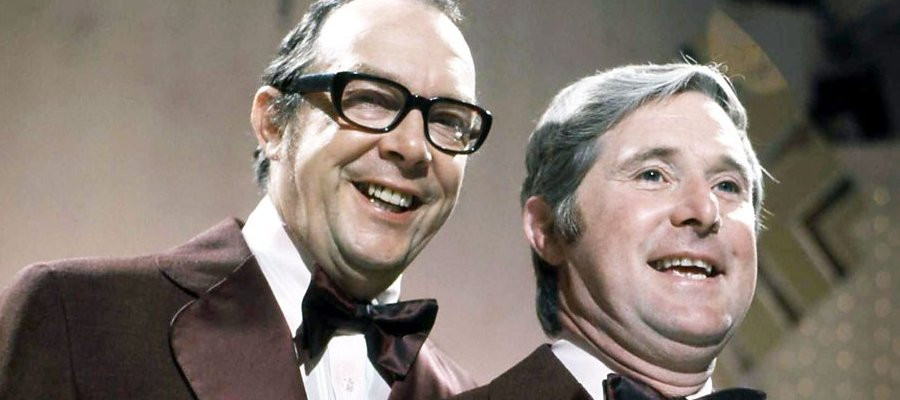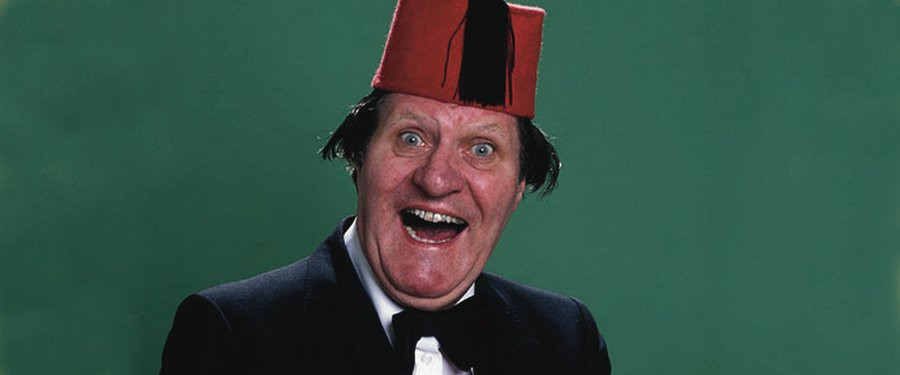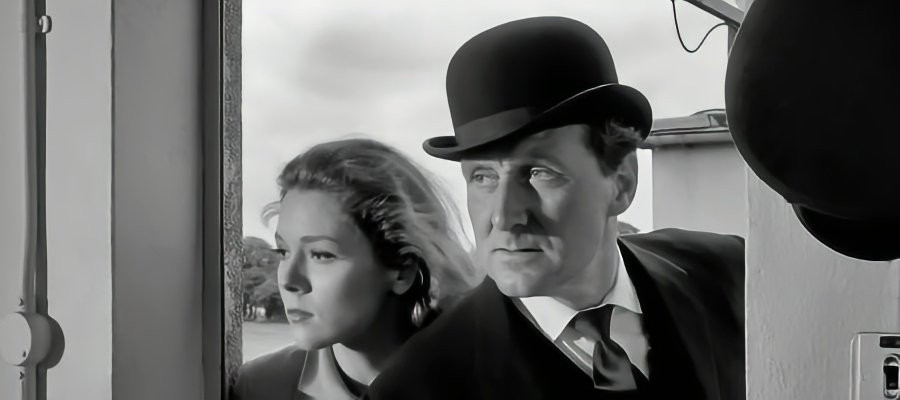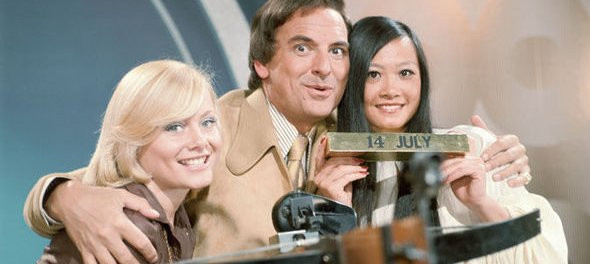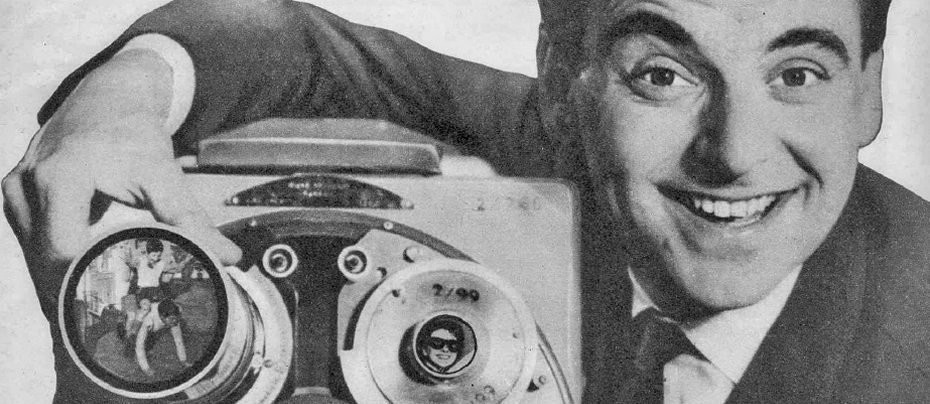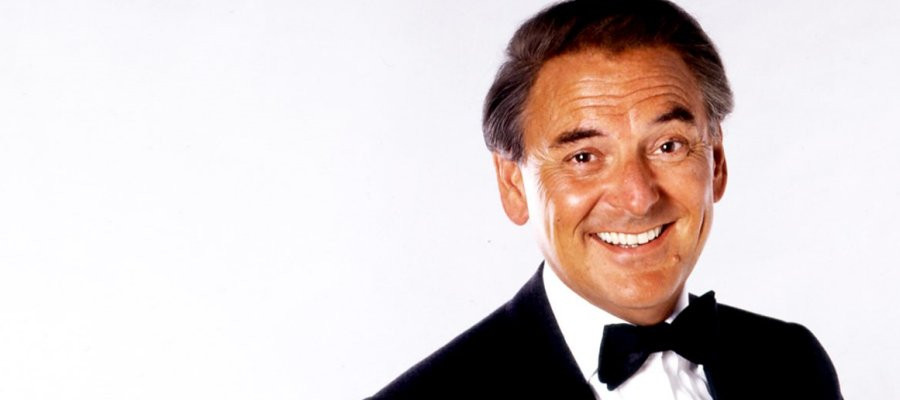
Bob Monkhouse
Bob Monkhouse was one of Britain's most prolific and best-known entertainers with a career that lasted over 50 years, and included work as a cartoonist, comedian, actor, writer and TV presenter. Master of the slick one-liner, with a collection of jokes second to none, he was also much sought-after as an after-dinner speaker. Although criticized by some for what they saw as his smooth and insincere on-screen persona, complete with permanent suntan and fake smile, no-one could ever question the professionalism and sheer hard work that went into all he did.
He was born Robert Allen Monkhouse on 1 June 1928, in Beckenham, Kent. Unlike most comedians at the time, he came from a very comfortable background, a fact he later concealed to avoid alienating his audience. "A comedian was supposed to be of the people. If you said you had a car, you lost them." His father was a chartered accountant and chairman of the family custard business, Monk and Glass, which Bob's parents hoped he would also join. He, however, had other ideas. He was sent to Dulwich College public school where being both very shy and very overweight meant he developed the defence of comedy to avoid being bullied. "The only way to win them over was to deliberately make them laugh at me. That way the sound of their laughter became a kind of success symbol." His mother, a painter, seemed unable to express any warm feelings towards him and his brother John, never hugging them when they were children. She once told him off for screaming when he broke his leg, as she was worried about what the neighbours would think. He later said of his parents "I didn't seem able to get their attention, and the more I did, the more distant they became."
Bob was a skilled cartoonist and sold his first strip cartoon to a children's comic at the age of 11. Soon he was regularly contributing to a number of publications, including the Beano and the Dandy, making a steady income in this way by the age of 15. He then started editing his own publication, commissioning artists and writers whom he then paid by postal order, before producing and distributing the finished product himself. He also moved into writing gags for comedians. He stood in the rain for three hours at the stage door of a theatre in Lewisham to sell a joke about an old maid's drawers to his hero, Max Miller, who paid him half a crown. He left Dulwich College at the age of 17 and began work as a cartoon film animator with Gaumont British. He was then called up for National Service in the RAF, eventually being posted to London as secretary to a Group Captain. Following a radio appearance on Ralph Reader's Gang Show he wrote to the BBC, only to be told he must wait a year for an audition. He wrote another letter, this time on office paper, and slipped it into a pile of things for the Group Captain to sign. The letter stated that Cpl Monkhouse desperately needed an audition to boost his confidence. The BBC obliged at once.
Billed as the 'British Bob Hope' he made regular appearances on such radio shows as Variety Bandbox and Workers' Playtime and became one of the first comedians to be given a contract with the BBC. He formed a successful partnership with Denis Goodwin who had also attended Dulwich College although their paths had never crossed there. They wrote for such stars as Arthur Askey, Ted Ray, Bob Hope, Jack Benny, Dean Martin and Jerry Lewis, pouring out more than 2,000 radio scripts. Bob would go to great lengths to further his career and get bookings. He joined the Freemasons, all three political parties and even learned to speak Yiddish so he could do Jewish charity functions.
Bob married his first wife Elizabeth, a Belfast nurse, in 1949. His parents were strongly opposed to the marriage: his mother wore mourning black to the wedding and they didn't speak for 20 years. The marriage quickly went sour, due largely to his constant affairs, including one with the actress Diana Dors. However, the couple stayed together until 1966, mostly for the sake of their son Gary, who was born severely disabled with cerebral palsy. They had a second son, Simon, and later adopted a daughter, Abigail.
Bob Monkhouse and Denis Goodwin moved into television in 1952 with their own sketch show, Fast and Loose. Performing wasn't Goodwin's strong point but the writing partnership continued until the mid-Sixties. Goodwin tragically committed suicide in 1975. Bob's television career took off to such an extent that at one stage he was on screen almost every night of the week, leading one critic to describe TV as 'Monkhouse with knobs on'. Series included My Pal Bob and Candid Camera plus appearances in game shows such as What's My Line? He also appeared in films such as Carry On Sergeant. His collection of silent comic films, a great passion of his, provided the basis for the series Mad Movies, made in 1966. However, it was the ATV game show The Golden Shot, originally presented by Jackie Rae which was to make him a household name. In 1967 the show was failing but Bob was convinced he could rescue it by adding his own brand of comedy and simplifying the format. These changes, combined with his knack of putting nervous contestants at their ease, turned it into a huge success, bringing in 16 million viewers and introducing such famous catchphrases as "Bernie, the bolt". He was one of the few people to realise the ephemeral nature of such shows at that time and insisted he take a couple of recordings home with him to ensure their survival. In 1975 came Celebrity Squares, which again proved ideal for his mixture of quick-fire, ad-libbing comedy and ability to get the best out of both the celebrities and the people taking part. He had a curious relationship with the British viewing public, demonstrated by the fact that in the 1970s he was once simultaneously voted the third most popular man on television as well as the most hated. Although he still regarded himself as a comedian first and foremost, and was fitting in over 150 cabaret and speaking engagements every year, he began to be seen mainly as a game show host, known for such shows as Family Fortunes and Bob's Full House. He also fronted the revival of a much-loved talent show in 1987 with Bob Says Opportunity Knocks.
He fell in love with his secretary, Jackie, and they were married in 1972 after he and Elizabeth eventually divorced. With Jackie's encouragement he was reconciled with his mother shortly before her death, although she had prevented him from seeing his father when he was dying. Unfortunately the family estrangements did not end there. He had a difficult relationship with his brother John in adult life, fuelled to some extent by their mother. His younger son Simon, a teacher who had long suffered from depression, died from a heroin overdose in a Thai guesthouse in 2001. They had not spoken for 13 years. His older son Gary had died in 1992.
In 1993 Bob was awarded the OBE, and also published his autobiography Crying With Laughter. This attracted a lot of attention as it combined the usual showbiz anecdotes with somewhat racier details of his many sexual exploits when he was younger. In 1995 he was given a Lifetime Achievement Award at the British Comedy Awards. That same year, two of his precious joke books were lost or stolen. Bob was devastated by their loss and put up a £10,000 reward for their return. He got them back a year later, by which time he had managed to recreate many of the best jokes from memory. The series An Audience With... in the mid-90s gave him the chance to re-establish his comedy credentials and gave a taste of the more near-the-knuckle material he had always used in his speaking engagements. His television career continued with guest appearances on Have I Got News For You and as a presenter of The National Lottery Live and Wipepout. Although he had never really gone anywhere, Bob was 're-discovered' by a new generation of comedians and audiences alike, who admired both the professional approach he brought to his work and his encyclopaedic knowledge of the jokes in his collection. He used a 'peg' memory system to remember these jokes, and took great pride in being able to adapt his routine to suit the make-up of the audience to which he was performing, turning up an hour or so early at functions to learn the names of key people and customise his jokes. He rarely turned down work, and was still travelling up and down the country to do corporate events when he was in his seventies. As one of the highest paid celebrities on British television he certainly didn't need the money, he did it for the sheer satisfaction and the thrill that the inevitable standing ovation always brought him, comparing it to the feeling you get when your favourite teacher puts a big tick on your work. After one charity dinner organised by the CBI, he handed over his own donation to the charity. Only afterwards did the organiser realise that the cheque exactly matched Bob's fee for the night.
In 2001 Bob was diagnosed with prostate cancer and was given an implant in his stomach and pills to take every day. He was determined to continue working, which he did until six weeks before his death despite being in great pain. He died in his sleep at his home in Eggington, near Leighton Buzzard, Bedfordshire on 29 December 2003. His manager Peter Prichard described him as one of the greatest comics England has ever produced. In 2005, in a poll designed to find the Comedian's Comedian, he was ranked among the top fifty comedy acts of all time by fellow comedians. Bob Monkhouse richly deserves his place among the TV greats.
Published on February 20th, 2019. Written by Denise Lovell (2005) for Television Heaven.


